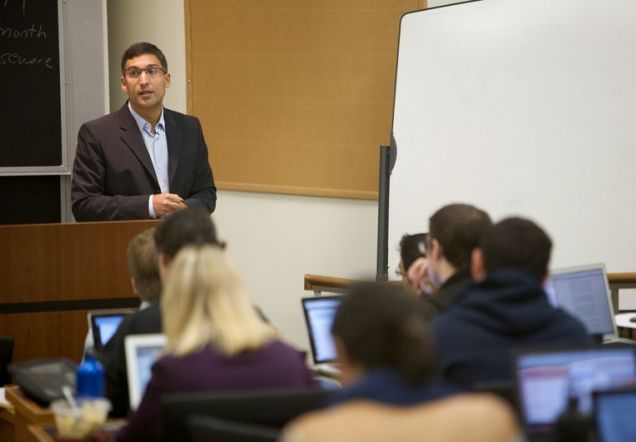
When Neal Katyal told his mother he was applying to law school, she burst into tears. From sadness, not joy. Clearly this was not the career path she had envisioned for her son.
Growing up, there was only one profession Katyal's parents told him he could pursue: becoming a medical doctor. He recalls being “indoctrinated into the medical profession from the age of two.” His mother and father told him time and again how, as a doctor, “you could help people.”
But over the years, he realized they had a “narrow conception of how to help people.” There were many other ways, and one of them was law.
It was during law school that he learned about a case that would stay etched in his mind, Korematsu v. United States, in which the Supreme Court upheld the constitutionality of U.S. President Franklin D. Roosevelt's 1942 order that led to the internment of 120,000 Japanese Americans.
For Katyal, it was a “dark day in the Supreme Court’s history,” but it taught him that “the American system of justice (...) makes mistakes, and it’s up to all of us to try and figure out how we can strengthen the system so that it never happens again.”
(Photo: Neal Katyal lecturing at Georgetown University)
